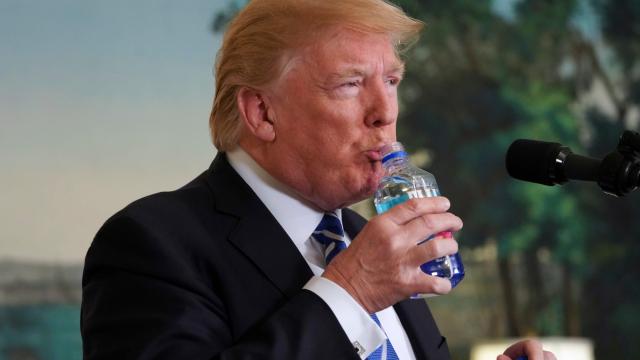The Trump administration’s Environmental Protection Agency (EPA) and Army Corps of Engineers just removed U.S. federal protections for hundreds of thousands of small waterways and many of the nation’s wetlands. Later today, EPA administrator Andrew Wheeler will announce the change at a conference of the National Association of Home Builders, an industry group that pushed for loosening clean water rules.
This is great news for those polluting corporations, such as fossil fuel producers, real estate developers, and Big Ag. They can now dump pesticides into many more waterways and build over many more wetlands with impunity.
The new rule replaces the Waters of the United States or WOTUS regulations, which define which U.S. waters are protected by the Clean Water Act. The Trump administration has been itching to kill the rule for years. The new rule replacing it is called the “Navigable Waters Protections Rule.” Unsurprisingly, it’s far narrower (read: worse!) than its Obama-era predecessor. It rolls back a 2015 rule which expanded WOTUS to cover wetlands and small waterways which feed into larger protected bodies of water and also weakens the EPA’s permitting process for polluting corporations.
For the rest of us, this is horrendous. Those waterways provide tens of millions of people with drinking water (does no one in the Trump administration ever drink from a faucet?). Wetlands filter pollutants, absorb floodwaters, and act as carbon sinks, which are all the more important in the face of ever-rising greenhouse gas pollution.
In addition to removing key protections for wetlands, artificially irrigated areas, roadside and farm ditches, groundwater, and farm and stock ponds are now excluded from pollution and flooding protections.
The new rule, released Thursday, is a bit broader than expected. The draft would have eliminated protections for half of all federal wetlands and 18 per cent of waterways, but some of those will now be protected.
But the final rule ended up protecting wetlands that are typically inundated by flooding, and those that are “physically separated from a territorial sea or traditional navigable water, a tributary, or a lake, pond, or impoundment of a jurisdictional water only by a natural berm, bank, dune, or similar natural feature.”
“Those things were excluded under the draft rule, but they’re protected in the final one, which is good news for the environment,” Mark Ryan, an environmental lawyer with Ryan & Kuehler PLLC who worked on the 2015 Obama regulation, told Earther while noting the rule is still extremely limiting. “This is the narrowest anyone has ever interpreted the Clean Water Act.”
On a press call, Wheeler said the rule would save money for ranchers and other around litigation, but that doesn’t account for the burden elsewhere. The rollback could also negatively impact public health and economically hurt affected areas by making local communities bear the burden of pollution and any potential cleanup.
“The new rule is scientifically indefensible and socially unjust,” Betsy Southerland, former director of science and technology at the EPA’s Office of Water, said in a statement. “It transfers the costs of pollution control and wetland protection from miners, oil and gas producers, and land developers ” who will no longer be regulated ” to downstream communities who will have to pay to protect themselves.”
This rollback also comes at an awful time for state environmental agencies, because over the past decade, most states have cut the agencies’ budgets, so it’s harder than ever for them to enforce regulations and carefully review permits.
“It’s naive to think states will do much to fill this gap,” said Ryan.
That’s not just bad for people living in states with particularly loose environmental protections, because water isn’t confined by state borders. “Water flows downhill, and if you have a less strict state upstream of a stricter state, that doesn’t work for the stricter one,” said Ryan. May every Trump official live downstream.
The new regulations will go into effect in the coming weeks, and once they do, environmental organisations and localities will definitely sue to try to overturn them. “There’s going to be litigation, that’s guaranteed,” said Ryan. “There will likely be motions to stay the rule, and they could very well be successful…so I think there’s a very good chance this rule won’t see the light of day, at least not for quite some time.” Let’s hope so.
